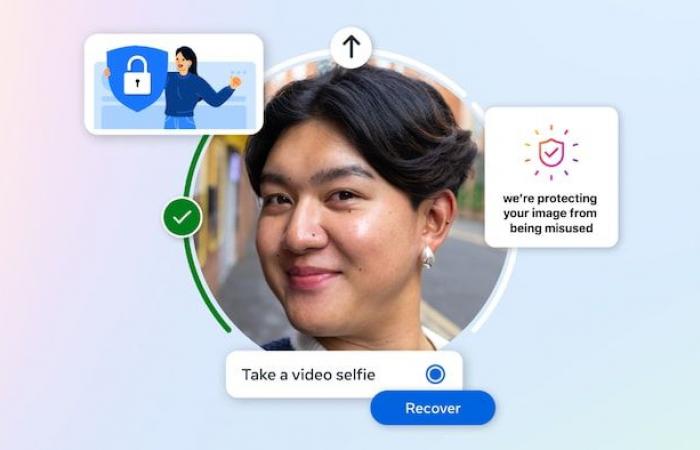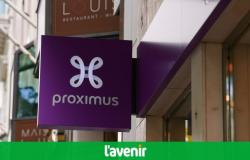Fraudulent celebrity advertisements, sometimes showing the host Maripier Morin disfigured, sometimes the prolific investments in cryptocurrencies of the host Guy A. Lepage, should be fewer on Instagram and Facebook.
At least that’s what their parent company, Meta, believes, which has announced the testing of new methods to fight against this type of scam.
Among these processes, the social media giant plans to use facial recognition.
When company systems have doubts about the veracity of an ad featuring a celebrity, this technology will compare the face in the ad to the face photos of Facebook and Instagram profiles
of the public figure in question.
If we confirm a match and determine the ad is a scam, we will block it.
The first tests gave promising results in terms of the speed and effectiveness of the detection and repression of this type of scam
explains Meta.
Open in full screen mode
New announcements from Rona refer to fraudulent advertisements which usurped the image of Normand Brathwaite on social networks a few months ago.
Photo : RONA
In Quebec, many personalities have been the subject of fraudulent advertisements. One of the most widespread shows the host Normand Brathwaite, disfigured and sometimes even declared dead. However, he does not have an account on Instagram or Facebook.
Elon Musk, the billionaire owner of
So how does the social media giant intend to go about it when a personality is not registered on its platforms? With datasets from other websites and competitors
or perhaps even WhatsApp, another Meta platform, suggests Jean-Philippe Décarie-Mathieu, a cybersecurity expert.
How much Facebook only uses its own dataset of images of faces and videos of faces to power a system like that, I doubt.
It is not specified whether the verification will be carried out from accounts displaying the blue check mark of authenticity, a seal which confirms that a profile does indeed belong to a personality.
Meta also intends to use facial recognition to detect new accounts that would like to monopolize the identity of a public figure, once again by comparing profile photos of the suspect account with those of a public figure’s Facebook and Instagram profiles
.
These protections will be activated by default for these accounts, which will soon receive a notification to inform their managers. People who do not wish to participate will be able to unsubscribe in their Account Space
specifies Meta.
A monster network, increased complexity
In addition to impersonating stars, the fraudulent advertisements that proliferate on Instagram and Facebook often show the logos, TV sets, websites and other nomenclature of Canadian media outlets. The Presse, The Quebec Journal and - are among the media that have been targeted by this type of announcement in recent years.
Despite blocking news on its social networks in Canada for more than a year, Meta seems to have difficulty blocking advertisements that usurp the visual identity of local media.
Jean-Philippe Décarie-Mathieu recalls that Meta is a network on a scale never seen before in computer history
and that its complexity is beyond the comprehension of a normal human being
.
According to him, solving problems like the proliferation of these fraudulent advertisements is not as simple as one might think. Blocking external links is much easier to do than detecting fraud live with facial recognition
he pleads.
The people at Facebook don’t press a button to fix the problem automatically. They don’t have alien technology.
However, proposing these solutions after more than two years of reports from different media pointing out the problem – the show’s first report THE Decryptors on the subject dates back to February 2022 – this is no coincidence.
The press release was not written by engineers, but by public relations specialists
underlines the expert.
For him, it is a accounting logic
: It’s a way for them to [mettre un baume] over years of laxity, to do what they can based on what they risk and, above all, to maximize the return on investment for shareholders.
Measurements for regular profiles
Meta’s announcement wasn’t limited to public figures. To spread fraudulent advertisements on Instagram and Facebook, criminals sometimes take over existing profiles.
Open in full screen mode
Selfie Video is a new method that will soon be tested by Meta to speed up the process of recovering a compromised account on Facebook or Instagram.
Photo : Meta
Internet users will be able to recover their compromised account faster
using facial recognition technology, rather than having to upload an ID. Meta will offer them to authenticate using a video selfie that will scan their face.
This procedure is similar to identity verification used to unlock a phone or access other applications.
The company says it does not retain this biometric data after use, whether or not its system detects a match.
Fraudsters are relentless and continually evolve their tactics to avoid detection. We are equally determined to stay ahead of them and will continue to develop and test new technical defenses to strengthen our detection and enforcement capabilities.
indicates the press release signed by Meta’s vice-president of content policy.
At the time of writing, Meta had not responded to -’s questions.







